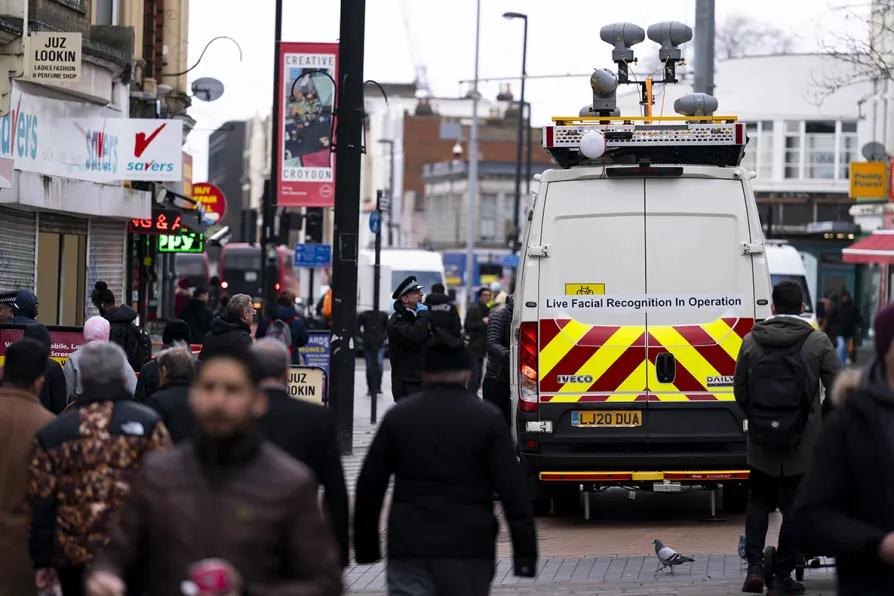
 The Metropolitan Police deploying the use of live facial recognition technology in Croydon, south London, February 9, 2024
The Metropolitan Police deploying the use of live facial recognition technology in Croydon, south London, February 9, 2024
POLICE across Britain are unleashing an unprecedented rollout of surveillance technology, branded today by campaigners as “worrying for our democracy.”
The Home Office has announced the introduction of 10 new live facial recognition (LFR) vans, which will be expanded to seven police forces: Greater Manchester, West Yorkshire, Surrey, Sussex, Bedfordshire, Thames Valley, and Hampshire and the Isle of Wight.
The forces will join South Wales Police, Essex Police, and the Metropolitan Police in using the mass-surveillance technology.
MPs never voted to authorise the use of LFR, nor is there legislation dedicated to regulating it.
Its governance is fragmented under a patchwork of decades-old policing laws, such as the Police and Criminal Evidence Act 1984, as well as data and human rights legislation.
Rebecca Vincent, interim director of campaign group Big Brother Watch, said: “This unprecedented escalation in the use of facial recognition technology across the UK is alarming, and represents a significant expansion of the surveillance state.
“Live facial recognition turns every passerby into a walking barcode and treats us all as a nation of suspects.
“This move is not only worrying for our privacy rights, it is worrying for our democracy.”
Big Brother Watch is backing a judicial review challenging the Metropolitan Police over their use of LFR, after the technology wrongly flagged anti-knife crime activist Shaun Thompson, who is black, as a criminal.
A 2019 US government study found that facial recognition systems were up to 100 times more likely to misidentify Asian and black people than white individuals
Policing minister Dame Diana Johnson told Times Radio that the algorithms used in the rollout have been independently tested, so she’s “confident” that it “does not have the bias that has happened previously.”
Speaking to BBC Radio 4, Labour peer Baroness Shami Chakrabarti said the technology had been “developed pretty much completely outside the law” and voiced fears that its use is “yet another move towards a total surveillance society.”
But Home Secretary Yvette Cooper insisted it will be “used in a targeted way to identify sex offenders or people wanted for the most serious crimes who the police have not been able to find.”
She said the government was “drawing up a new legal framework, so we’ve got proper safeguards and checks in place.”
A government consultation on the use of the technology is expected this autumn.














